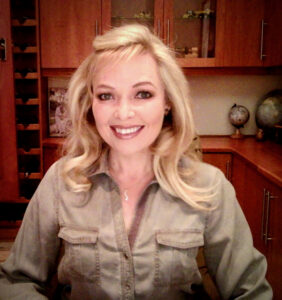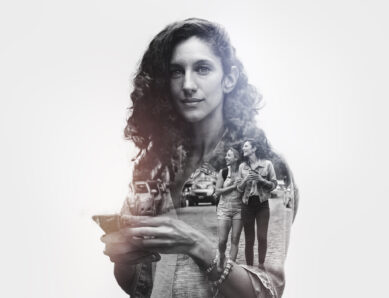Who are you? Who do others say you are? What’s the truth about who you are? What’s your self-declaration?
It might be easier if I start with me. Who am I? I am Yolandé Conradie. There you have it. And there isn’t much to it. Or is there?
Words of Self-Declaration
I am Yolande. I am Yolande Meiring (maiden name), but I am also Yolande Conradie (married name) and I was also Yolande van Heerden at one time (previous marriage).

Each of these declarations of identity contains different images, has different connotations and denotes a different stage of my life. Yet they’re all me, all part of me and they all announce part of my identity.
I am a white, South African, Afrikaner woman. This might sound simple, but it isn’t. Obviously, if I am South African, white and was born and raised on the African continent, it means that I am of colonial ancestry, and mine is mostly German and Dutch. I grew up in the apartheid era and, as an Afrikaner, in a deeply patriarchal culture with strong religious beliefs.
My words of identity tell full and rich stories, all playing out against a backdrop of family, culture, tradition, rites, rituals, power, authority, and taken for granted beliefs and ideas.
Words of Belief
In the delicious and painful process of becoming an adult, we cultivate beliefs about ourselves. We are also given the baggage, or the gift, of what others believe about us.
My mother will say I am her youngest child. To tell you the truth (and I cringe to say it), she still refers to me as her “baby.” My sister, senior to me by almost six years, will tell you I am a brat! I have to confess: it is true that, as a cheeky pigtailed 10-year old, I did refuse to leave the lounge when her boyfriend visited. I stuck to that sofa like I was glued to it. They had to offer me a generous bribe to buy my departure!
My grade one teacher used to call me a “ray of sunshine.” My neighbor will tell you I am the person who phones him if I hear or see something out of the ordinary at his house. Some of my students will tell you that I’m strict and my boundaries are clear. Others will add that I’m like a mother to them — fair, always willing to help and listen — but I take no nonsense. And my “gift children” (I don’t like the word “stepchildren”) will agree.
I am a rebel. I often question beliefs and ideas that others take for granted. I have challenged patriarchal and religious authority since I was very young — it didn’t win me any prizes for popularity — and once I was even described as “a disgrace to my parents” (thankfully, not by my parents).
Once, after I’d not done very well in a test, one of the exasperated adults in my life said, “You’ll never amount to anything! You’ll end up selling sugar one day!” To this day I don’t know why selling sugar is so bad! Don’t we all crave the stuff? Sounds like good business to me! However, I understood what they meant, and it hurt. It meant that one day I might not be good enough.
When, in my late twenties, I read this quote by U.S. politician and speaker Les Brown, I had an “A-ha!” moment: “Don’t let someone else’s opinion of you become your reality.”
I realized that I didn’t have to accept others’ beliefs about me as my truth — I could cultivate and speak my own words of belief.
So, who am I?
- I am friendly and helpful.
- I am strict and loving.
- I am a rebel (and OK with that).
- I choose not to believe that I am a disgrace to my parents.
- And to the person who told me I will sell sugar one day, I say I am good enough.
Words of Creation
Words have power, and our words define our worlds. There are many layers, meanings, subtexts, and implied ideas in the words we say, especially in what we say about ourselves.
How can the words “I am” be words of creation? If our words have power, it means we have a responsibility to be mindful of our words. We must think of the selves we are creating.
Here are some examples of “I am” as words of creation:
“I am a truth-teller.” This person will create a space to speak the truth and will also speak truth to power.
“I am a bridge-builder.” A bridge-builder will endeavor to create understanding between people, rather than spread misunderstanding, discrimination and prejudice.
“I am a difference-maker.” The person who sets out to make a difference will find ways to improve circumstances, to educate, and to bring about positive change.
Unfortunately, the opposite is also true. The person who proudly proclaims “I am a hell raiser” will do exactly that, and create space for discord. There are many such examples, but I choose not to focus on them because we want to use our words to make a positive difference. I am… a person who creates safe spaces.
I Am… Words of Self-Declaration
In our #MTtalk Twitter chat on Friday, we discussed how we declare ourselves to others. Here are all the questions we asked, and some of the best responses:
Q1. Which words usually follow when you say “I am… ” to identify yourself to other people?
@MikeB_MT These past 20 months have taught me the value of acknowledging to myself and others that “I am present… ” “I am here… ” It’s a great place for me to start.
@SoniaH_MT When identifying myself to others in writing or via phone, I usually say, “This is Sonia” or “My name is Sonia,” w/ or w/o my last name, depending on the type of communication and environment.
Q2. How complete a picture of you are these “I am” statements? What’s missing and does this matter?
@ColfaxInsurance I’ve got a pretty complete picture of myself. There are a couple things that I would like to add to the “I am” statements, but we’ll get there with time.
@WonderPix Sometimes we don’t give full I am info to others, but it’s important to be aware of it for ourselves. Saying, “I am… xyz” can help us be in the moment.
Q3. “I am… ” is about belief as much as stating facts. What belief(s) about yourself do you reveal with “I am… “?
@SarahH_MT Our words of self-declaration become our reality. They can hold us back, they can reinforce or reject the words of others. They can affect our self-belief, self-confidence and self-actualisation. And they can deceive us if they aren’t accurate!
@JKatzaman “I am” reveals that I’m not comfortable saying that. It’s more like writing your own evaluation. It’s just not that conversational.
Q4. How does your current way of completing the statement, “I am…” differ from your words five years ago?
@J_Stephens_CPA Five years ago, I learned to answer the question “How are you?” with “I am blessed,” from @FrLarryRichards. It changes your outlook to remember that. I didn’t always appreciate how blessed I was 10 years ago.
@Midgie_MT They are more positive, kind and accepting of what is, as compared to five years ago. They are gentler, more loving, towards myself.
Q5. Which labels that you use for yourself are out of date, and what could you say instead?
@DrKashmirM Out of date: “I am a doctor,” “I know better,” or “it is your fault.” Now I say instead: “Although I am a doctor, I will need your help, your opinion is precious.”
@Yolande_MT Any “I am” that will encourage me to do things I’ll regret later needs a second think. Morgan Freeman said, “Don’t allow your emotions to overpower your intelligence.” That!
Q6. Give examples of negative words of self-declaration that could you shift into positive ones.
@Yolande_MT “I am completely overwhelmed.” Change to, “I am feeling overwhelmed, but I am going to write a list, prioritize, delegate And it will help me feel that I am in control.”
@MindfulLifeWork “I am tired” morphs nicely into “I am worthy of rest.”
Q7. Is it possible to use new “I am” declarations to change your mindset, or even your identity? Explain.
@SarahH_MT A work in progress for me is not so much how I talk to myself, but my self-declarations to others. If I hear myself describing who I am with clarity, confidence and credibility, it helps my mindset become all of those things.
@SoniaH_MT Yes, I can use these new “I am” declarations to change my mindset/ identity. I’ve followed people on social media who’ve shared their mantras, although I’ve never created one for myself.
Q8. What might be the reaction of other people to your new assertions about yourself? Does it matter?
@ColfaxInsurance There could be surprise or immediate acceptance or push back against it. But it doesn’t matter, as long as you’re happy with who you are.
@MindfulLifeWork Most people prefer consistency to real growth, which involves change. When we attempt to really grow, those that love us will inadvertently try to limit our growth. It’s not their fault, but it is our responsibility to continually realign ourselves with our truth.
Q9. How could you help someone else to shift their negative self-declarations?
@TheTomGReid I have asked people if that is what they want me to think of them, since they said it. I then assure them I do not think of them that way, and proceed (often without invitation) to give them a candid, and positive perspective. I’m outspoken like that sometimes.
@Midgie_MT I use the 4 questions by @ByronKatie: Is it true? Can you absolutely know that it is true? How do you react, what happens, when you believe it is true? and Who would you be without that thought?
Q10. What steps will you take to turn your “I am…” statements, old or new, into actions?
@MikeB_MT By being specific about my statements, linking them to actions and goals. Nurturing them. And regularly checking in on my “I am…” to hold myself accountable to “How am I doing?”
@JKatzaman Knowing what I am good at and what makes me me helps put aside the negative rubbish that other people with more time on their hands can sort through if that’s what makes them happy.
Thank you to everyone who contributed to, or attended and enjoyed the chat! To read all the tweets, see the Wakelet collection of this chat, here.
Coming Up in Next Week’s #MTtalk
In next week’s #MTtalk, we’ll be considering the question, how would you like to be recognized and celebrated at work? See our Twitter poll for suggestions, and join us next week!
Useful Resources: I Am… Words of Self-Declaration
If you’ve enjoyed this week’s chat about self-declarations, take a look at some of our resources on the subject, below. (Please note, some resources will only be accessible in full to members of the Mind Tools Club or Corporate members.)
Positive Thinking, Thought Awareness, and Rational Thinking
Dweck’s Fixed and Growth Mindsets




Comments
Sarah Harvey says
3 years agoSuch a profound blog from Yolandé Conradie. I'm really looking forward to a lively and enlightening #MTtalk this Friday. Please do join in, even it's your first one.
Sarah
MindTools Team